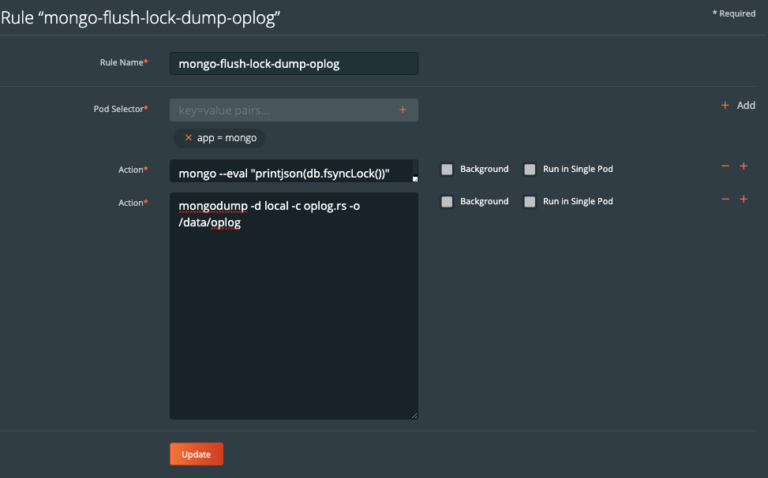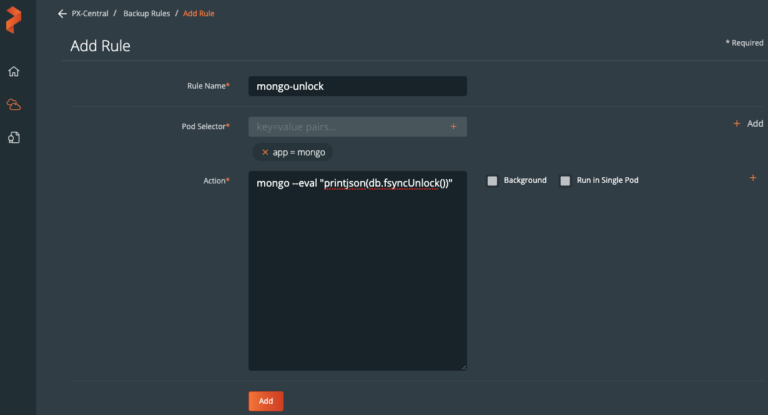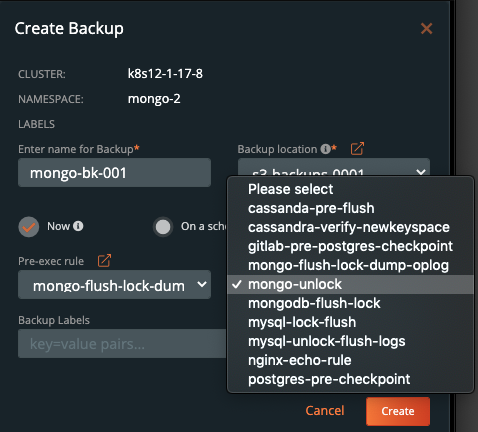Backup MongoDB on Kubernetes
You can use the instructions on this page to create pre and post backup rules with Portworx Backup, which take application-consistent backups for MongoDB on Kubernetes in production.
MongoDB stores data files in a location called dbPath. dbPath is most often configured to use /var/lib/mongo. Some container images may also configure this path differently, so it is important to pay attention to dbPath.
When deployed with more than a single node, MongoDB has an additional component called Oplog that should be considered during backup. The MongoDB Oplog is a special capped collection that keeps a rolling record of all operations that modify the data stored in your databases. The Oplog can also be used for database recovery. Because the Oplog recovery can take a very long time, MongoDB usually is combined with regular database snapshots.
Installation
Prerequisites
If you have not used Portworx, Portworx Backup, or run Data services on Kubernetes it is a good idea to review the following information:
- Install Portworx on Kubernetes
- Application installation
- Install Portworx Backup
- Add cluster to Portworx Backup
- Creating backup rules
- MongoDB pods should use the label
app=mongofor this example. - If MongoDB is using oplog, you will need a persistent location to dump oplog. The location
/data/oplogis used in this example.
Create rules for MongoDB
Create rules for MongoDB that will run both before and after the backup operation runs:
Create a pre-exec backup rule for MongoDB
Portworx Backup should flush writes to disk and lock the database to ensure a consistent backup. This is done using the db.fsyncLock() method.
-
Navigate to Settings → Rules → Add New.
-
Add a name for your Rule.
-
Add the following app label:
app=mongo -
Add the following action:
mongo --eval "printjson(db.fsyncLock())" -
Add the second action:
If you are using Oplog, this will dump Oplog and can be used for alternate database recovery.
mongodump -d local -c oplog.rs -o /data/oplog
Create a post-exec backup rule for MongoDB
Create a post-backup action that will administratively reduce the lock on the database following your pre-backup db.fsyncLock() operation.
-
Navigate to Settings → Rules → Add New.
-
Add a name for your Rule.
-
Add the following app label:
app=mongo -
Add the following action:
mongo --eval "printjson(db.fsyncUnlock())"
Use the rules during backup of MongoDB
During the backup creation process, select the rules in the pre-exec and post-exec dropdowns:

Once you have filled out the backup form, click Create.
Demo
Watch this short demo of the above information.